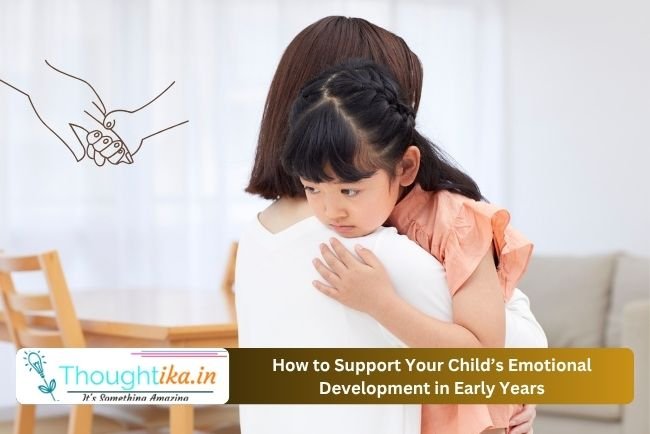How to Support Your Child’s Emotional Development in Early Years
Discover practical tips to support your child’s emotional development in early years. Learn how to foster emotional skills and build a strong foundation for their future.

How to Support Your Child’s Emotional Development in Early Years
Emotional development is a crucial aspect of a child’s growth, especially during their early years. It lays the foundation for how they understand and manage emotions, build relationships, and navigate challenges in life. As a parent, you play a vital role in fostering this development. Here are some practical strategies to support your child’s emotional growth:
1. Create a Safe and Supportive Environment
Children need a safe space where they feel secure to express their emotions. Encourage open communication by actively listening to their feelings without judgment. This helps them feel valued and understood.
2. Teach Emotional Vocabulary
Help your child identify and articulate their emotions by teaching them words like happy, sad, angry, and frustrated. This builds their emotional intelligence and makes it easier for them to communicate their feelings.
3. Model Healthy Emotional Responses
Children learn by observing their parents. Show them how to manage emotions effectively by staying calm during stressful situations and resolving conflicts constructively.
4. Encourage Empathy and Social Skills
Teach your child to understand and respect others’ feelings. Encourage activities that promote teamwork and cooperation, such as playing with peers or participating in group projects.
5. Validate Their Emotions
Acknowledge your child’s feelings, even if they seem trivial. Validating their emotions helps them feel heard and builds their confidence in managing their emotional experiences.
6. Provide Consistency and Routine
A predictable routine gives children a sense of stability, which is essential for emotional security. Consistency in boundaries and expectations also helps them feel safe and supported.
7. Encourage Problem-Solving Skills
Guide your child in finding solutions to challenges rather than solving problems for them. This fosters independence and resilience, key components of emotional development.
By implementing these strategies, you can help your child build a strong emotional foundation that will benefit them throughout their life. Remember, emotional development is an ongoing process, and your support is invaluable in shaping their emotional well-being.
What's Your Reaction?















